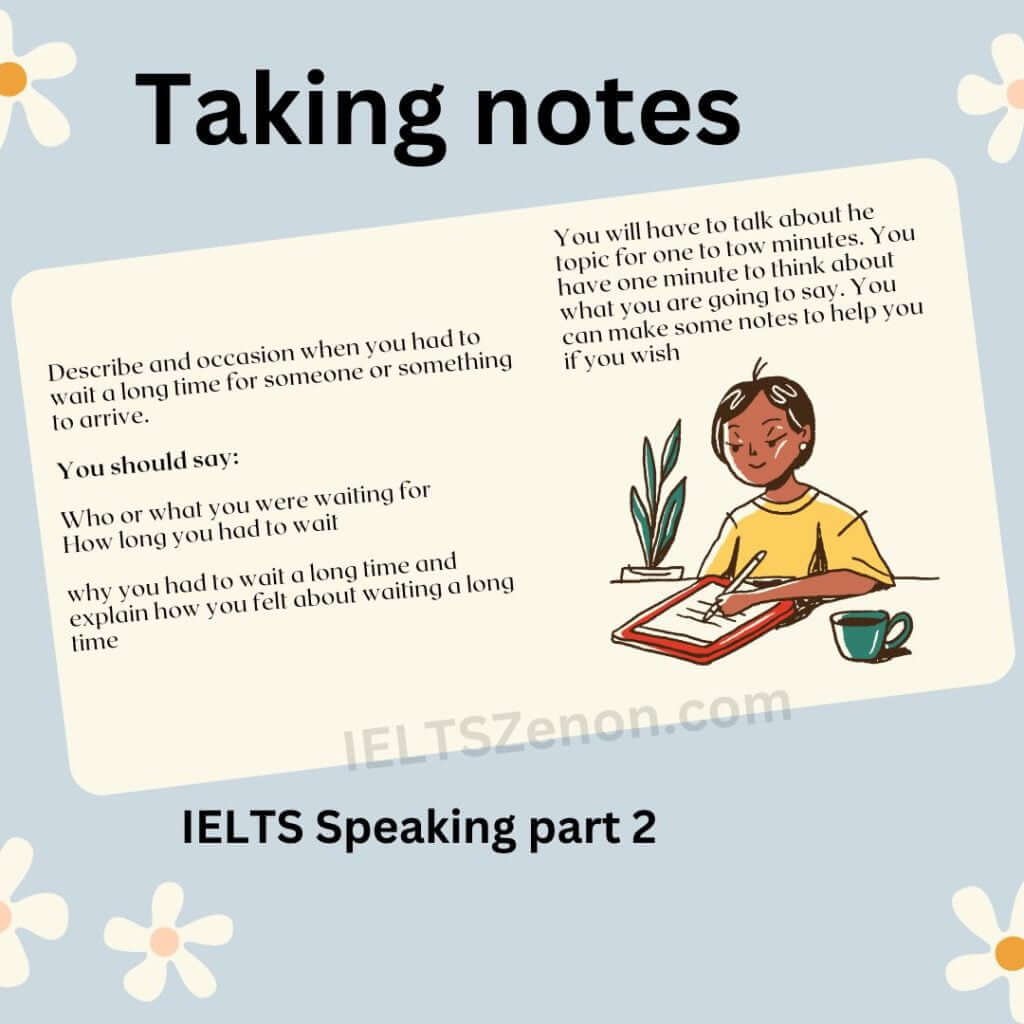It’s Ferdous and I’m going to share some tips and tricks about taking notes during the test of IELTS Speaking Part 2, this section is also known as the “Long Turn” section, which can significantly enhance your performance and help you deliver a well-structured and coherent response.
Let’s explore thoseTips and Tricks about taking notes efficiently:
I know that it is difficult to read for a long time but you should do it because you want to get a good score on IELTS Speaking In this article I will show All those Tips and Tricks step by step
Understand the Topic: This is an important Tip and trick about taking note
Read the topic card carefully to understand the main theme and specific task you need to talk about. Identify key points that you can use to structure your response.

Use Abbreviations and Symbols:
Develop a system of abbreviations and symbols that make sense to you. This can help you jot down important information quickly without wasting time on writing out full words.
Focus on Keywords: Expert suggestion
Listen for and note down keywords that will guide your response. These could be nouns, verbs, adjectives, or phrases that capture the essence of what you need to talk about.
Organize Your Notes: Very much effective
Create a simple outline using your notes. This could include an introduction, main points, and a conclusion. Organize your thoughts logically so that your response flows smoothly.
Bullet Points and Short Phrases: Useful Tip and Trick about taking notes
Write in bullet points or short phrases rather than complete sentences. This saves time and allows you to glance at your notes quickly while speaking.
Highlight Supporting Details:
Include any specific examples, anecdotes, or supporting details that you plan to mention in your response. These can add depth and authenticity to your answer.
Use Visual Aids:
If the topic involves describing a process, diagram, or map, use arrows, symbols, and simple sketches to visualize the content you’ll discuss.
Practice with Familiar Topics:
Practice note-taking on a variety of topics to get comfortable with the process. Use past prompts or generate your own to simulate the test environment.
Practice Time Management:
Practice speaking for about two minutes based on your notes. Time yourself to ensure that you’re able to cover all the key points within the allotted time.
Be Selective:
While taking notes, prioritize capturing the main points and essential details. Avoid trying to note down everything word for word.
Legibility Matters:
Ensure your notes are legible and clear to you. If you can’t understand your own handwriting or symbols, they won’t be of any use during the speaking part.
Stay Calm and Confident:
During the actual test, keep your composure. Don’t panic if you miss a detail in your notes. The goal is to have a rough guide to help you structure your response, not to memorize every word.
Rehearse Transition Phrases:
Alongside your notes, practice using transition phrases to move smoothly between different points in your response.
Taking effective notes in IELTS Speaking Part 2 requires practice. The more you practice, the better you’ll become at quickly identifying key information and structuring your thoughts. Remember that your notes are there to support you, so use them as a tool to deliver a confident and coherent response. Wish you all the best. Good luck with your IELTS journey.

